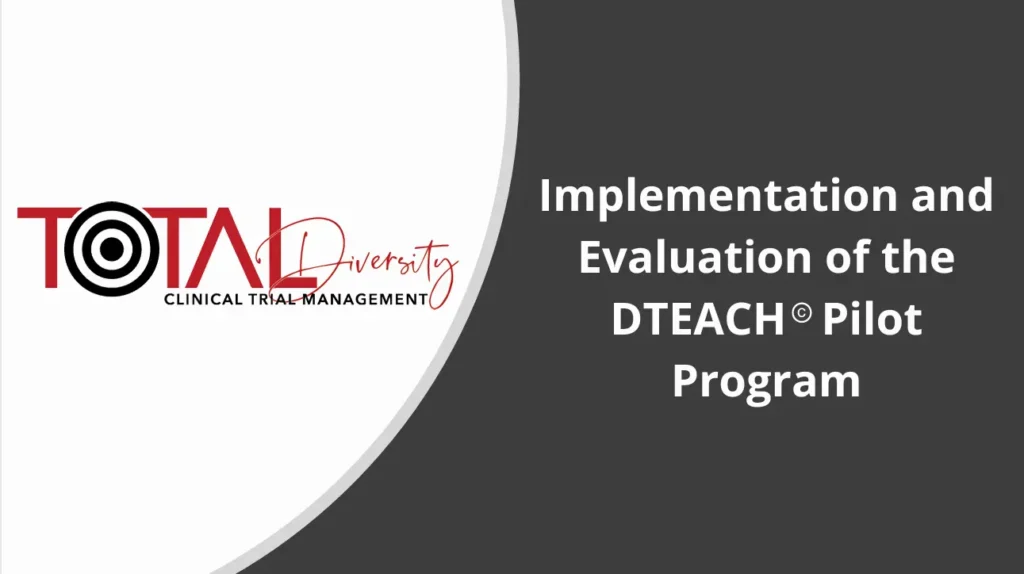
Overview:
The whitepaper details the implementation and evaluation of the DTEACH©(Diversity Training and Education) pilot program, designed to improve the diversity of patient populations in clinical trials. The program, launched between January and June 2023, focused on neurology clinical trials across 40 sites in the U.S. Each participating site completed a Diversity Site Assessment Tool (DSAT) and a series of training modules. The aim was to address the underrepresentation in clinical trials by providing sites with practical diversity training and resources via a web portal. The program also measured participants’ satisfaction and the perceived usefulness of the training.
Problems:
The main problem addressed in the whitepaper is the lack of diversity in clinical trials. Historically, participants in clinical trials do not reflect the demographic diversity of populations using pharmaceutical products. This underrepresentation can limit the generalizability of trial outcomes. The pilot program tackled this issue by providing structured training aimed at promoting diversity in clinical trial sites, assessing current practices using DSAT, and offering resources to improve recruitment and retention of diverse populations.
Solution:
The DTEACH© program was designed as a self-paced training module that included:
- Diversity Site Assessment Tool (DSAT) – A 25-item self-assessment used to evaluate diversity best practices at clinical trial sites.
- Training Modules – These covered key topics like becoming a diverse-capable site, developing recruitment and retention plans for diverse populations, and integrating diversity across site operations.
- Web Portal – Offered continuous access to diversity resources and practical tools to support day-to-day operations and foster inclusive behaviors.
Participants also completed quizzes following each module to reinforce learning and assess comprehension. The program was designed to be universally applicable to various site characteristics, with no significant differences in outcomes based on region, race, or ethnicity.
Results:
- DSAT Scores: The average total DSAT score was 127.29 out of 150, with the highest mean scores in site recruitment and outreach, and the lowest in patient-focused services.
- Participant Feedback: The training modules, portal resources, and overall program received high ratings, with an average satisfaction score of 84.27 out of 100. Participants found the program valuable and useful for enhancing diversity practices at their sites.
- Correlation between DSAT and Feedback: There was a positive correlation between high DSAT scores and positive participant reactions, indicating that those who rated the DSAT highly were also likely to find the program valuable.
The results suggest that the DTEACH© program was successful in enhancing the sites’ capacity to recruit and retain a more diverse participant base for clinical trials.






